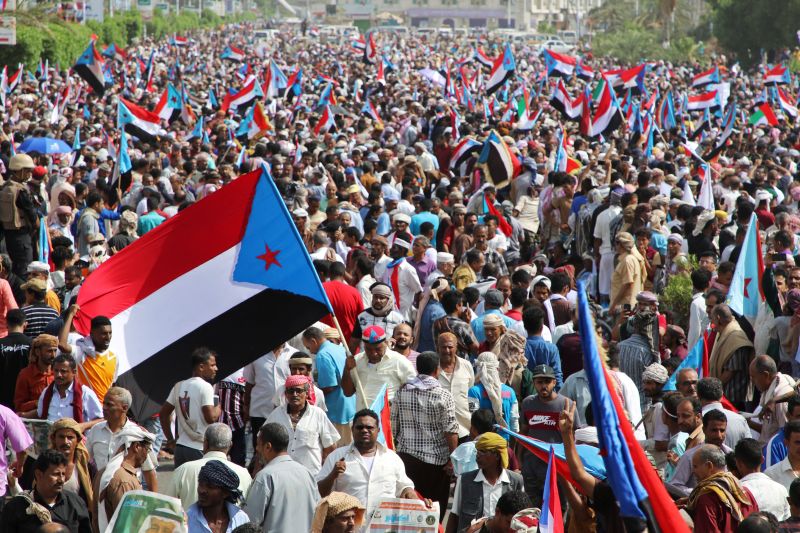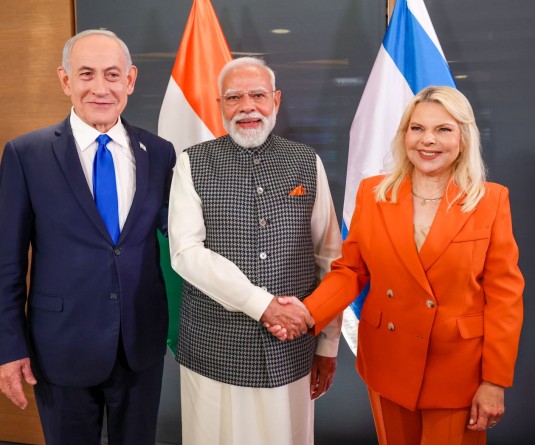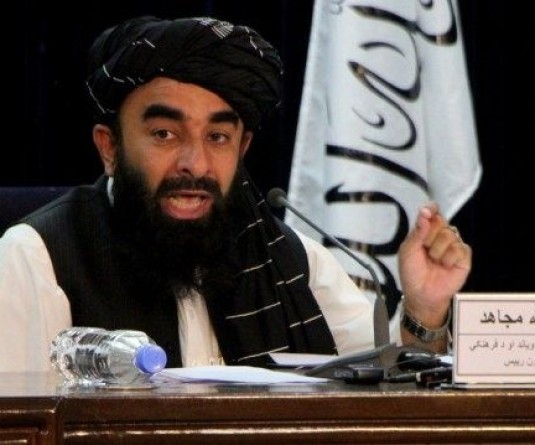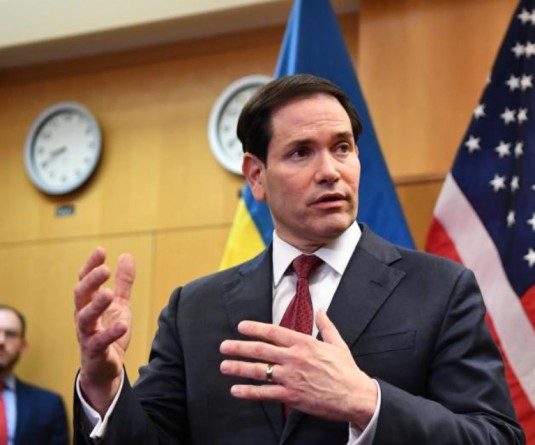Aden standoff delays Saudi summit intended to forge new Yemen government: sources

Supporters of Yemen's UAE-backed southern separatists march during a rally in southern port city in Aden, Yemen on August 15, 2019. (REUTERS Photo)
DUBAI, August 19 (Reuters): The refusal of Yemeni southern separatists to hand back control of Aden port has delayed a summit in Saudi Arabia that is due to discuss reshuffling Yemen's ousted government to include the separatists and end the stand-off, three Yemeni sources said.
Saudi Arabia called for the meeting after the separatist forces on Aug. 10 seized military camps and other state institutions in the southern port city, the temporary seat of the Saudi-backed government of President Abd-Rabbu Mansour Hadi.
The Aden crisis has fractured the Sunni Muslim military coalition led by Riyadh that is battling the Iran-aligned Houthi group, which controls the Yemeni capital Sanaa. Meanwhile the Houthis have escalated cross-border attacks targeting Saudi energy infrastructure.
"Forming a new government has been proposed and the alliance supports it, but inclusion of the Southern Transitional Council (STC) is linked to them fully withdrawing first," said a Yemeni official, who declined to be named.
The official said Hadi, who has no personal power base and has long been out of favour with the United Arab Emirates, a coalition member, may be sidelined if a new deputy is named.
The coalition declined to comment on non-military matters. There was no response from the Saudi or UAE foreign ministries or government media offices.
So far, the UAE-backed southern forces have refused to quit military camps, while vacating other state institutions, as they believe it would weaken their hand, the sources said. Hadi's government said it would not attend talks until the "coup" ends.
While separatists have a rival agenda to Hadi's government -- demanding self-rule in the south -- they are part of the Western-backed coalition that intervened in March 2015 against the Houthi movement that ousted Hadi from power in late 2014.
The Aden takeover exposed differences between allies Saudi Arabia and the UAE, which supports thousands of southern fighters. Abu Dhabi, which says the alliance remains strong, has urged dialogue but has not asked separatists to cede control.
The UAE in June scaled down its presence in Yemen under Western pressure to end the war and as rising tensions with Iran threatened security closer to home. Abu Dhabi has said the focus should shift from military tactics to a political solution.
"Uniting ranks and improving the (Yemen) government's performance is crucial in the next phase," UAE Minister of State for Foreign Affairs Anwar Gargash tweeted on Saturday.
Saudi Arabia wants to prevent rival Shi'ite Iran from building influence near its border by neutralising the Houthis.
HADI VULNERABLE
The conflict, which has killed tens of thousands and pushed Yemen to the brink of famine, has been in military stalemate for years with the Houthis holding Sanaa and most big urban centres.
It has rekindled old strains between north and south Yemen -- separate countries until 1990. The Aden tensions further complicated United Nations efforts to pave the way for political talks on a transitional governing body to end the war.
The STC has said its forces will hold Aden until the Islamist Islah party, a key component of Hadi's government, and northerners are removed from power positions in the south.
"Hadi is incapable of running Yemen due to his age and health. He trusts no one, and this makes things difficult at a critical time," said the Yemeni official.
The official and another Yemeni source said one option being discussed was transferring presidential powers to a new vice president, leaving Hadi, who is 73 and resides in Riyadh, as a figurehead.
"It would be good to have a responsible, consensus VP," said a senior official in the Gulf, while adding that Hadi had to remain to preserve the internationally recognised government.
STC accuses Hadi's government of mismanagement, and Islah of being complicit in a Houthi missile attack on southern forces, which prompted the Aden takeover. Islah denies the charge.
The UAE regards Islah as an offshoot of the Muslim Brotherhood, which Abu Dhabi has banned. Riyadh tolerates Islah because it has helped to prop up Hadi.
The Houthis, who say they are fighting a corrupt system, point to Aden as proof that Hadi is unfit to rule.
"Southern forces are close enough to the sites they vacated to retake them at any moment. They outnumber and out-arm other forces in Aden," another Yemeni official said.






